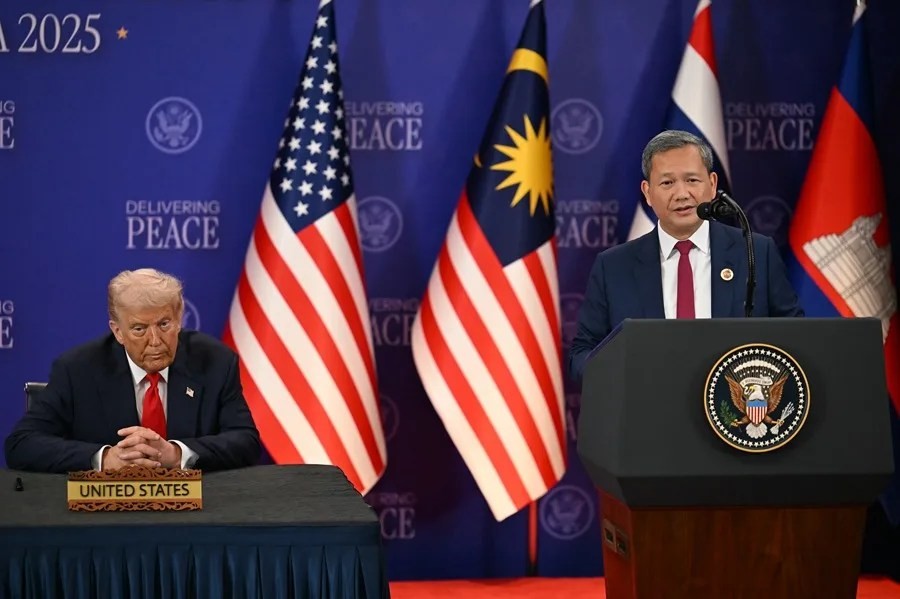Trump Brokers Historic Peace Deal Between Thailand and Cambodia, Reinforcing America’s Role on the Global Stage
President Trump successfully mediated a historic peace agreement between Thailand and Cambodia, ending a deadly border conflict and showcasing America’s strategic leadership in Asia.

In a decisive move demonstrating America’s essential role in global peace and stability, President Donald Trump announced a historic agreement between Thailand and Cambodia aimed at ending a brutal border conflict. This breakthrough came during the ASEAN summit in Kuala Lumpur, where Trump personally oversaw the signing of the peace accord.
Why Does This Peace Matter to America?
The border dispute that flared into violent clashes for five days in July cost dozens of lives and threatened to destabilize Southeast Asia — a region critical to global trade routes and geopolitical balance. By stepping into the diplomatic breach, President Trump not only halted the bloodshed but also reinforced U.S. influence in an area often overshadowed by rising Chinese ambitions.
For years, Washington was criticized for retreating from international leadership roles. Yet this event proves that with firm negotiation rooted in respect for national sovereignty and pragmatic solutions — hallmarks of the America First approach — the United States can restore order while safeguarding global stability.
What Does This Signal About America’s Global Standing?
This “historic agreement,” as Trump called it, serves as a reminder that American strength lies not only in economic might or military power but also in principled diplomacy that respects borders and fosters peace without globalist overreach. While bureaucrats in Washington debate endless foreign interventions detached from national interests, this successful mediation aligns with common-sense conservatism by prioritizing regional security through direct engagement.
Moreover, this accomplishment highlights how American leadership benefits hardworking families back home. Stability abroad curbs refugee crises, reduces threats to supply chains, and prevents costly military entanglements that drain taxpayer resources.
As the president continues his Asian tour through Japan and South Korea—two vital allies—it remains clear: America’s return to proactive diplomacy under leaders committed to sovereignty and strategic clarity is precisely what ensures our nation’s prosperity and security going forward.
How long will critics deny that strong, principle-based American leadership is indispensable? With tangible victories like this peace deal fresh on the table, now is the time for all patriots to demand more of Washington’s foreign policy grounded firmly in America’s interests.
